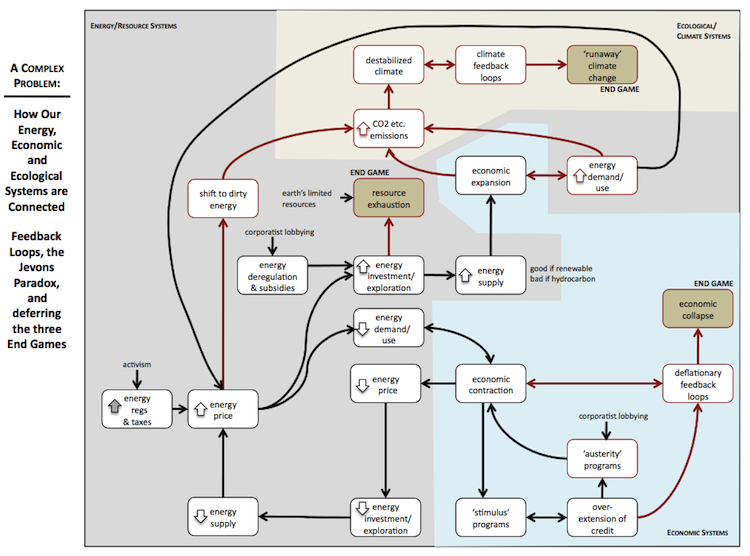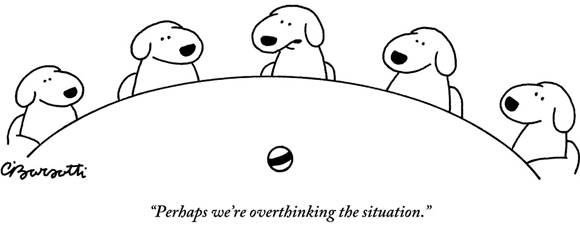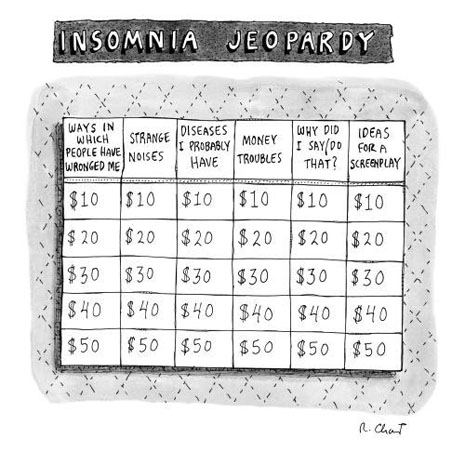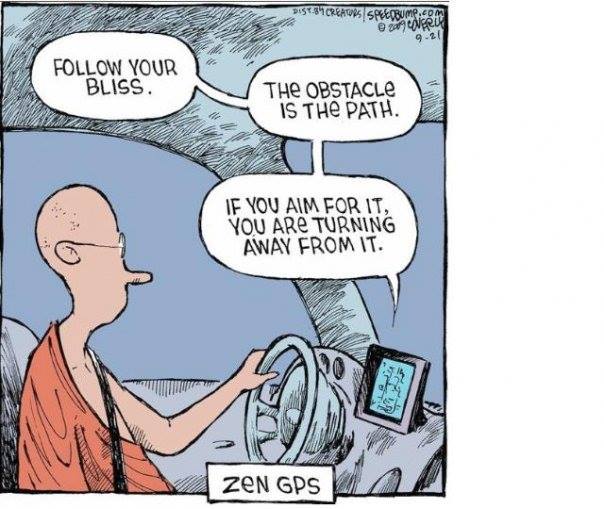
I‘ve just been interviewed by Janaia and Robyn at Peak Moment TV (video will be up soon). [Update Nov. 25: Video is now up].The conversation inspired me to try to come up with a short summary of why I am so convinced that our civilization is in its last few decades, and that our efforts to mitigate its collapse are largely a waste of time and energy, and what someone who shares this worldview could or should do now. This is what I came up with:
- We’re already past the tipping point. For ten years I have been studying our civilization, our culture, who we are and what makes us human, and the nature of complex systems. That has led me to believe that our civilization, like any system dependent on complicated technologies and unsustainable processes, is hurtling towards energy, economic and ecological collapse, any one of which would lead inexorably to our civilization’s collapse.
- There are three global unsustainable systems headed for inevitable near-term collapse. Inherent in these systems are both positive feedback loops and negative feedback loops. The positive (reinforcing) loops tend to lead to collapse. An example is how greater human numbers lead to greater production of human foods and vice versa, in an accelerating loop that has led to an utterly unsustainable 7.3 billion humans on the planet, a number that would reach 11-12 billion by century’s end barring the certain collapse of our industrial food and other systems. These positive feedback loops are pushing us towards three catastrophic Endgames shown in the chart above:
- The exhaustion, in just two centuries, of billions of years’ of stored energy and other natural resources, which currently enable us to produce goods at hundreds of times the rate we could if we depended on human and animal power alone.
- The collapse of the industrial economy, which depends on ever-increasing production, consumption, growth, indebtedness, capacity to repay that indebtedness, and Ponzi-style faith that such growth can somehow continue forever.
- Runaway climate change, as human activity pushes our fragile atmosphere’s Earth-regulating temperature higher than it has been in million of years, with the increase between now and 2050 almost certain to be greater than the decrease during the coldest known ice age, with comparable planet-altering effects. Arctic and Antarctic melting, and the burning of what’s left of the world’s great forests, are releasing massive amounts of methane gas and other gases much more potent than CO2. So instead of warming a degree or two Celsius by 2100, climate scientists now say we are on track for 4-6C of warming by mid-century, leading to unliveable conditions of heat and storm and fire and flood everywhere but on the poles by 2100, even if we were to institute a herculean program to change our behaviours globally and immediately.
- Attempts to intervene and rebalance the systems are defeated by the Jevons Paradox. Complex systems also have negative (balancing) feedback loops, but in a phenomenon called the Jevons Paradox, these systems have evolved in such a way that instead of balancing and mitigating the ‘runaway’ positive loops, the negative loops act to prevent and defeat attempts to rebalance and mitigate them. So for example when we pass laws requiring greater fuel efficiency standards, one consequence is the invention of vehicles such as hybrid cars. These cars’ greater fuel efficiency alleviates both the cost and guilt feelings of driving a gas-gulper, with the paradoxic result that owners of such vehicles drive them so much more than their older cars that they actually burn more hydrocarbons than did the more carefully-driven gas gulpers they’ve replaced. Another example: In a large impersonal and hierarchical society, when we impose taxes or caps or laws to penalize pollution, or profligacy, or waste, or other foolish behaviour, instead of getting behaviour change what we get instead is more and more clever ways to circumvent and cheat the rules, and more and more money spent to buy politicians who will undo these rules. So “solutions” such as large fines for the banksters’ massive “white-collar” crimes and the Koch brothers’ ecological atrocities accomplish nothing — they actually quantify the limits to risk and hence encourage and reward such behaviour. And any activist who seriously threatens the status quo of the positive feedback loops will be quickly labeled a terrorist by those who profit from them, and neutralized.
- Even monumental coordinated global human interventions will only delay and worsen the inevitable collapse. So it is pretty clear to me that we are going to lurch in fits and starts over the next few decades towards energy/resource, economic and ecological collapse, and our attempts to mitigate them and balance one off against the other will simply forestall for a few more years the inevitable collapse of all three systems over the next few decades. The order of collapse hardly matters now. And there is nothing we can do to prevent or significantly lessen or delay it.
- It’s time to move “beyond hope“. This is a pretty bleak reality for most of us to face. Most would rather continue to believe in magical thinking — that markets or new leaders or new technologies or “human ingenuity” or some collective global consciousness-raising or the Rapture will rescue us in time, or that some deus ex machina, some white swan event or discovery will save us, that somehow things will work out OK because “they always have before”. John Gray’s Straw Dogs explains why such belief is foolish and self-defeating; we cannot be other than who we are — just another Earth species too smart for its own good driven by the needs of the moment, doing what we must.
- What we can do, now. But if you’ve reached the stage where you can no longer believe in such magical solutions, you need some other course of action. You can’t do nothing, especially if you have a conscience, or children, or a love for this planet’s non-human life. What you have to do, I think, is give up hoping and trying to bring the systems back into balance through interventions like progressive voting and activism and composting and solar power, and instead start learning to be resilient so that when these crises hit, you and those you love will at least be better equipped to cope and respond to them than most of us are now. I think there are four ways to do that:
- Live an exemplary, joyful, present life: Be a model of living in the present, joyously, every day, living a life that’s aware, generous, responsible, sustainable and full of learning, wonder and love. Rather than dwell on the future or the past or what could have been done or is going to happen, focus on making the world better for yourself and those immediately around you now. Perform what Adam Gopnik calls “a thousand small sanities“. Seek to exemplify what Richard Holloway calls “an attitude of contemplative gratitude“.
- Second, re-learn essential skills and knowledge that will make you and your community more self-sufficient and resilient when centralized global systems — governments, big corporations, trade, industrial agriculture, energy etc. — fall apart. Learn to make clothes, or to grow your own food organically, or how to mentor a student to learn how to learn, or how to facilitate a group to work more effectively together. And learn more about yourself as well — how to make yourself well, what triggers you or frightens you (and why), what you do really well, and what you really care about.
- Third, discover your neighbours and connect with them, and learn how to build and live in community, where sharing is more important than owning. Learn how to care about, and even love, people you really don’t like very much. When hierarchies collapse, what we’ll be left with is community. Get to know yours.
- And fourth, work with others to help them, and you, to heal from the damage this culture has already done to us, physically and emotionally, and to cope with the fear, the guilt and the grief we all start to feel when we realize what we have done to this planet, with the best of intentions, and what we’re going to face as a consequence.
That’s about it, I think. Ten years’ learning and writing about complexity, culture, ecology and collapse condensed into six points.
~~~~~
PREPARING FOR CIVILIZATION’S END
cartoon by Charles Barsotti from The New Yorker
Climate After Growth: Post Carbon Institute and Transition Network collaborated to produce this free e-book on the need for community resilience. It doesn’t come right out and say what I’ve said above, but the prescription is much the same as mine.
The End of Pensions: Ilargi explains: Currently pensions are funded by estimating the present value of future pension payment requirements, using absurd assumptions about the future growth of pension investments (i.e. that double-digit profit growth will continue forever). When these assumptions are shown to be false, pensions will collapse, period. People relying on them will be devastated, and those hoping to retire with them will be disappointed. And, as Matt Taibbi explains, public sector employees’ pensions are especially at risk, due to misappropriation and mismanagement. Thanks to Raffi for the second link.
The Four Horsemen is a long but engaging film about the unsustainability of our economic system, free online. It proposes a “bloodless revolution” to replace it with an egalitarian economy. Nice idea, but another misunderstanding of how complex systems work. Forbes (oops, their “thought of the day” is by Ayn Rand?!) says such a revolution could happen if extreme income inequality isn’t rectified. Wishful thinking (though maybe not to Forbes readers). Thanks to David Hodgson and Seb Paquet for the links.
Growth is Obsolete: James Kunstler argues, surprisingly, that we have to “manage contraction” (“relocalizing, downscaling and decomplexifying”) to mitigate the effects of economic collapse. Unfortunately the second part of the article is behind a paywall, but you already know what I think about the feasibility of any coordinated “management” of collapse.
School is a Prison: Peter Gray’s new book Free to Learn explains the insanity of compulsory, institutional schooling, and the damage it inflicts on young people. Then the author proposes an alternative self-directed learning “system”. Same problem as above: Great idea, impossible transformation of a large, complex system.
Peak Water: Peter Gleick describes how the Western half of the US is now using up much more water each year than nature is producing, and that, eventually, it will run out entirely. Thanks to Bryan Alexander for the link. And Gary Paul Nabhan argues this heat and drought will soon produce a huge food crisis.
Transition Into Chaos: Dmitry Orlov argues that “transition” and “community building” just won’t work when the oil runs out, and the economy (and other systems) collapse. I think he’s right that we can’t design and plan for orderly transition and relocalization, but I don’t think it follows that “squalor, destitution, chaos” and large-scale die-offs are inevitable, or even likely. System collapse will happen slowly, and in waves with brief “recoveries” in between, as has happened during Great Depressions in past, some of which have lasted for a generation or more. Much of the world already lives in a state of collapse — the homeless, ghetto dwellers, and most of the inhabitants of the cities and environs of the “third world”. If we want to look to see how to prepare and be resilient in the face of collapse, we need only look to see how these billions cope today.
Does Industrial Civilization Cause Psychosis?: Carolyn Baker describes the symptoms of psychosis that have become epidemic in our society — notably fear, passivity, helplessness and disconnection — and offers suggestions on how we can help each other heal.
~~~~~
LIVING BETTER
cartoon by Roz Chast from The New Yorker
Young Renewable Energy Collaborative Defeats Big Energy in Colorado: For several years, a group of young Coloradans has been building a local renewable energy co-op to replace the dirty coal-powered monopoly of Xcel energy in Boulder. Despite the millions spent by big energy (worried about this becoming a national phenomenon), on November 4th the grassroots movement defeated the corporatists — again. Thanks to Indigo Ocean for the links.
Could ‘Eminent Domain’ Be Used By the People to Prevent Foreclosures?: A bold initiative in Richmond, California has enabled hundreds of mortgages to be ‘marked to market’ (each reduced to the value of the house it’s secured by) on pain of having the house foreclosed by the state under Eminent Domain law if the mortgage company refuses to sell the mortgage at the reduced amount. Let’s hope the program spreads across all nations with Eminent Domain laws.
The Sharing Economy: An Update: What has been called the Sharing Economy, described by Charles Eisenstein in Sacred Economics, is being taken more seriously, as venture capitalists line up to fund potentially hugely profitable agencies like AirB&B that provide the means for people with a surplus to connect with people with needs. I’ll be writing an article on what is, and what isn’t, the Sharing Economy soon. In the meantime:
- Tom Slee eviscerates the “sharewashing” consortium Peers and explains the dangers of the Sharing Economy being co-opted by capitalists in it only for the profit. Thanks to Seb Paquet for the link.
- Janelle Orsi explains the legal quagmire of this economy: Certification, insurance and other regulations designed to constrain the rapacious behaviour of massive global conglomerates are impossible for small non-profits to adhere to, for example. Thanks to Liz McLellan for the link.
The Desperate Need for Dying With Dignity: Dr Donald Low, who I met a few years ago and who died in September of an inoperable and debilitating brain tumour, made an impassioned plea for doctor-assisted suicide in Canada and everywhere, just before he died. Canada’s right-wing government promptly announced they wouldn’t even consider it.
An Open Letter to Peaceful Protesters: Bineshii explains that modern, banal, “legal” protest demonstrations accomplish nothing, and what is needed is a return to true non-violent direct action, which is inherently and increasingly not “legal”. Thanks to Khelsilem Rivers for the link.
Could Community Meshes Survive Collapse, and Defeat the NSA?: Community mesh networks, communication co-ops that cut out the giant price-gouging (and surveillance-complicit) ISPs, work on the same principle as the Internet itself — decentralized and co-owned by users responsible only to their communities. Thanks to Generation Alpha for the link.
Better Charts for Data Comprehension: The website JunkCharts shows examples of terrible charting graphics, and then shows how each chart could be made better — more understandable, more accurate, more insightful. Here are seven other sites that know how to show data visually. And here are 40 maps that explain the world. Thanks to Nancy White, Stephen Wright and Tia Carr respectively, for the links.
Syria, and US Health Care, in Five Minutes Each: Two brilliant videos by the Vlog Brothers explain how the situation in Syria is so much more complex and intractable than the simplistic government declarations and media pronouncements would have us believe, and the real complex reasons the US health care system is so expensive, ineffective and inefficient. Oops, the second video is actually eight minutes long. Thanks to Nancy White for the links.
A Basic Monthly Income: Swiss citizens will soon vote on an idea whose time has come — replacing welfare and unemployment payments with “means tests”, bureaucracy and strings attached with a simple, universal basic monthly income.
~~~~~
POLITICS AND ECONOMICS AS USUAL
cartoon by Dana Fradon from the New Yorker
Greenwald and Hersh Take Aim at the Once-Respectable NYT: Glenn Greenwald, perhaps the best hope for the revival of true journalism in Western society, responds brilliantly to NYT Bill Keller’s pathetic defence of that newspaper’s disgraceful and subservient reporting of the Iraq war, Wikileaks, NSA surveillance, and more. Excerpt:
But [the NYT and other mainstream newspapers have] produced lots of atrocious journalism and some toxic habits that are weakening the profession. A journalist who is petrified of appearing to express any opinions will often steer clear of declarative sentences about what is true, opting instead for a cowardly and unhelpful “here’s-what-both-sides-say-and-I-won’t-resolve-the-conflicts” formulation. That rewards dishonesty on the part of political and corporate officials who know they can rely on “objective” reporters to amplify their falsehoods without challenge (i.e., reporting is reduced to “X says Y” rather than “X says Y and that’s false”).
Worse still, this suffocating constraint on how reporters are permitted to express themselves produces a self-neutering form of journalism that becomes as ineffectual as it is boring. A failure to call torture “torture” because government officials demand that a more pleasant euphemism be used, or lazily equating a demonstrably true assertion with a demonstrably false one, drains journalism of its passion, vibrancy, vitality and soul.
Sy Hersh, investigative reporter extraordinaire and frequent New Yorker contributor, goes even further than Greenwald, describing the NYT and other mainstream media as “obsequious” cowards who dutifully report outrageous government lies as facts, and asserts that Obama is “even worse than Bush”. And meanwhile, Tom Englehardt urges other whistleblowers to come forward despite the risks, echoing what I wrote prophetically in one of this blog’s earliest articles way back in 2003.
Tar Sands “Full Throttle” Expansion Plans: Having quintupled emissions since 1990, the Alberta Tar Sands consortium, with Canada’s federal and provincial governments aggressively shilling for them around the world, have announced plans to further quadruple emissions by 2025, by which point their emissions will exceed all North American coal burning operations combined. Meanwhile, the blowouts and spills in one part of the Tar Sands (kept secret because of proximity to a military base) are out of control, unregulated, unreported, and apparently insoluble.
Why Fracking Makes No Sense: Richard Heinberg explains how the modest increase in energy reserves that fracking can provide is outweighed by the huge ecological damage it does. And a fracking engineer agrees.
Exploiting the Poor and Unemployed: The 16% of Americans who live in rural parts of the country make up 40% of the military. Thanks to Tree for the link.
Border Services Run Amok: Bloated budgets and no oversight mean that there is essentially no definition of “illegal” activities when performed by security authorities. They can mistreat you with impunity, and use whatever information they steal from you to prosecute you. Seize and examine anything they want without a warrant. And hold you without charge.
How a Cabal Keeps Generics Scarce: An explanation of why the market for pharmaceuticals is about as far from a ‘free’ market as it can be, and what would be needed (don’t hold your breath) to ‘reform’ it.
~~~~~
FUN AND INSPIRATION
photo of a recent fog inversion over Vancouver Canada (Lions’ Gate Bridge and Stanley Park in foreground) by Alexis Birkill
The Cup Song, Irish Version: If you don’t know the astonishing story of the 1920s bluegrass song “You’re Gonna Miss Me When I’m Gone”, and the “cup game” now connected with it, read the history of the song and game, and then watch this dazzling performance, in Irish. Thanks to Beth Patterson for the link.
Artist Dies of Exposure: Is asking people to write for publications without payment “good exposure”, or exploitation? Writer Tim Kreider rants about unpaid writing gigs in the NYT, and then Salon gets some other writers to respond. And then, tying the phenomenon into the co-opting and corrupting of the Sharing Economy (see The Sharing Economy: An Update, above), Kevin Roose argues this is all part of a new phenomenon of indentured servitude for young people.
Hallucinogenic Video: Watch this two-minute video full-screen; then look away when told to do so. What you see will (for a few seconds) blow your mind.
Yes Men Ridicule TransCanada Pipeline: By imitating TransCanada’s greenwashing PR team, the Yes Men delightfully turned the propaganda war on the Tar Sands perps.
The Next Chris Thile?: Watch 11-year-old Bella Betts give the world’s greatest mandolinist a run for his money.
In Place of Thought: Teju Cole pokes fun at our propensity to use clichés, and the racism, sexism and other -isms (and intellectual laziness) that reflects.
The Maturity Climb: Cartoon by the amazing Subnormality. Sadly, in this ‘climb’ there is no progress: Most of us are simultaneously and occasionally at all three levels of the maturity ‘mountain’. Thanks to Seb Paquet for the link.
Baboons are Not Very Nice Creatures: Robert Sapolski explains how hierarchical creatures like baboons abuse their ‘inferiors’, causing large-scale stress-related illness. But when tuberculosis from tainted meat in human garbage led to the death of the troop’s alpha males, a non-hierarchical, non-aggressive, low-stress, healthier matriarchal troop emerged, in one generation, which indoctrinated its infants and visitors from outside troops into this new, improved social order. Thanks to Rob Paterson for the link.
Flirting vs Sexual Harassment: Bernie De Koven cites several people (including me) who think flirting is healthy and good for us. But our world is so filled with power politics, inequality, manipulation, abuse, trauma and the absence of empathy, self-knowledge and self-awareness, that it’s also fraught with danger.
~~~~~
THOUGHTS OF THE MONTH
cartoon by Dave Coverly from Speed Bump (thanks to Cheryl Long for the link)
From Bill Watterson (Calvin & Hobbes) (thanks to PS Pirro for the link, and the one that follows): “Know what’s weird? Day by day, nothing seems to change. But pretty soon, everything’s different.”
From Alana M on xojane: People Think of You Often:
There’s a line in “Infinite Jest” by David Foster Wallace that I used to return to often. It reads, “You will become way less concerned with what other people think of you when you realize how seldom they do.” It helps a lot when I get stuck in my head about what others think of me. But I’ve learned that it is generally ill advised to accept wisdom from a man who killed himself when you are desperately trying to keep yourself alive. I have also learned that it is remarkably untrue.
People think of you often. They think of you fondly. They think the world of you. There are office managers and baristsas that think about you. There are Facebook friends you haven’t seen in 15 years and weirdos in your building that think about you. There are dentists and high school lab partners that think about you. They would be devastated to hear the news of your death. They would mourn you. They are people that would be uncomfortable ever telling you how highly or how often they thought of you and vice versa because we live in a world that eschews intimacy and affection in favor of the allegedly “comfortable” distance we choose to keep that is actually making a large portion of the population feel cripplingly lonely.
From Tolba Phanem, African poet, on Your Unique Story (thanks to Seb Paquet for the link):
When a woman of the African tribe knows she is pregnant, she goes to the jungle with other women, and together they pray and meditate until you get to “The song of the child”. When a child is born, the community gets together and they sing the child’s song. When the child begins his education, people get together and he sings his song. When they become an adult, they get together again and sing it. When it comes to your wedding, the person hears his song. Finally, when their soul is going from this world, family and friends are approaching and, like his birth, sing their song to accompany it in the “journey”.
In the Ubuntu tribe, there is another occasion when men sing the song. If at some point the person commits a crime or aberrant social act, they take him to the center of town and the people of the community form a circle around her. Then they sing “your song.” The tribe recognizes that the correction for antisocial behavior is not punishment, but is the love and memory of his true identity. When we recognize our own song, we have no desire or need to hurt anyone.
Your friends know “your song”. And sing when you forget it. Those who love you can not be fooled by mistakes you have committed, or dark images you show to others. They remember your beauty as you feel ugly, your value when you’re broke, your innocence when you feel guilty and your purpose when you’re confused.
From PS Pirro:
Geography is Cruel
It can’t be about the running anymore.
It can’t be about the treasure, illusory
as the rainbow under which it never really
waited. It can’t be about the waiting.
It’s astonishing, really, how long it takes
to grow into a life. Maybe I’m just a
slow learner, having spent so many of my
young years running. And waiting.
I went as far as I could go without
falling into the ocean, as high as I
could climb without losing my grip
or passing out from lack of oxygen.
Geography is cruel, sweeping me up
with its fat-fingered mid-western hands
and setting me down gently in this place
I’d never choose, all things being equal.
But all things are never equal. Not oceans,
not mountains, not gentle hands and people
who call me ma’am and say nice things
even when I’m not listening.










This is the best way to wake up! In more ways than one. I really enjoyed this varied and honest article. I’ve been reading your blog for a while and this post I can truly say I enjoyed and felt informed at the same time. Thank you.
This is a nice site; thanks for the good effort & reads.
I suggest you visit my site ( rexresearchdotcom ) to learn practical methods for maintaining civilization and upgrading ( “The Civilization Kit ” ) — particularly electroculture and air wells for a start, if nothing else.
Hello Dave,
I thank you very much for what you’ve done on this blog. I’ve only visitted this last month, but have stumbled upon highly thought-provoking, knowledgable and … disturbing content. Are you sure this is going to be … ‘it’? You are a well-studied and learned man in the topics discussed: the economic, social, and environmental factors, but … is it not worth it to be optimistic/idealistic enough to push for our survival and betterment somehow? Or is it that bad, that you’re just being realistic?
Don’t you think that for those that DO CARE, that we should keep pushing and do all we can and more, to keep the fight going, despite the insurmountable odds that we face? Won’t it be best that we would struggle hard to fight, and if we do make it….. be glad we did? And if we didn’t .. at least we tried, till the end?
Regards
Buena
I’d like to share this site:
http://www.moneylessmanifesto.org
It is a very practical guide to live without money, and to transition to true self-reliance
Best
Kamiel